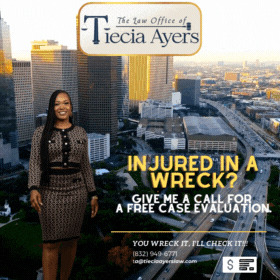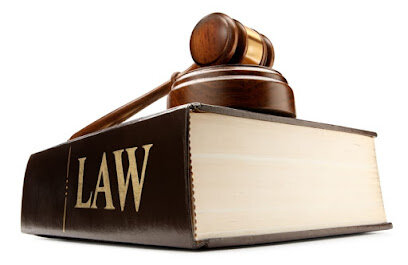Best Speeding & Traffic Ticket Lawyers in Texas
Share your needs with us, get contacted by law firms.
Free. Takes 2 min.
Or refine your search by selecting a city:
List of the best lawyers in Texas, United States
About Speeding & Traffic Ticket Law in Texas, United States
Speeding and traffic ticket laws in Texas are designed to promote road safety and regulate the flow of traffic. When a motorist is cited for exceeding the posted speed limit or violating other traffic rules, they are typically issued a citation that can result in fines, points on their driving record, increased insurance premiums, and, in some cases, even license suspension. Texas treats traffic violations seriously, and repeat offenders may face more severe consequences. An effective defense or resolution often depends on a thorough understanding of local laws and procedures.
Why You May Need a Lawyer
Many individuals believe that paying a ticket is the easiest resolution, but in some cases, legal assistance can make a significant difference. Here are some scenarios where a lawyer may be helpful:
- You have accumulated multiple tickets and are at risk of license suspension.
- You believe you were wrongly cited due to an error by law enforcement or confusing signage.
- Your driving record is crucial for your employment, such as for commercial drivers.
- You have been charged with reckless driving or speeding far above the posted limits, which can carry criminal penalties.
- You want to avoid increased insurance premiums that can result from points on your record.
- You are unfamiliar with the court process and want guidance on the best course of action.
Local Laws Overview
Key aspects of Texas speeding and traffic ticket laws include:
- Texas uses a points system - tickets for moving violations add points to your driving record.
- Most speeding tickets are categorized as Class C misdemeanors, punishable by fines, but excessive speeding or reckless driving can lead to more serious charges.
- Speed limits vary widely across highways, residential areas, and school zones - exceeding these limits can result in hefty fines and possible additional penalties.
- Defensive driving courses can be used to dismiss certain citations or reduce points, but eligibility is limited.
- Failing to address a traffic ticket can result in a warrant for your arrest and additional fines.
- Drivers have the right to contest a ticket in court, and many jurisdictions allow for pretrial negotiations to reduce or dismiss charges.
- Some cities and counties have unique traffic ordinances and procedures, so local rules may affect your case.
Frequently Asked Questions
What should I do if I receive a speeding ticket in Texas?
Carefully read the citation and note the deadline to respond. You must either pay the fine, request a court date, or take other steps listed on your ticket. Ignoring the ticket can lead to additional penalties.
Can I get a speeding ticket dismissed in Texas?
Yes, in certain circumstances, such as if you qualify for a defensive driving course or if there are procedural errors in the ticket. Consulting a lawyer may increase your chances of dismissal.
How many points does a speeding ticket add to my Texas driving record?
Most moving violations, including speeding, add two points to your record. If the violation results in a crash, three points may be added.
How can a traffic ticket affect my insurance rates?
Convictions for speeding and other moving violations can raise your insurance premiums, sometimes significantly, depending on your insurer and driving history.
Is going to court for a speeding ticket worth it?
It depends on your situation. Contesting a ticket may lead to reduced penalties or dismissal, particularly if you have a strong defense or prior clean record. A lawyer can advise on your specific case.
What happens if I ignore a traffic ticket in Texas?
Ignoring a ticket can lead to a warrant for your arrest, additional fines, and suspension of your driver’s license.
Can an out-of-state driver get a ticket in Texas?
Yes, and the ticket will often be reported to your home state, which may assign points or other penalties according to their laws.
How long does a speeding ticket stay on my record in Texas?
Most convictions remain on your record for three years from the date of conviction. Accumulating too many points in three years can result in surcharges and license suspension.
Are there increased consequences for speeding in a school or construction zone?
Yes, fines can be significantly higher, and in some cases, additional mandatory penalties may apply if caught speeding in these specially designated areas.
Can I represent myself in traffic court in Texas?
You have the right to represent yourself, but having legal counsel may help you achieve a better result, especially in complex or high-stakes cases.
Additional Resources
Here are some helpful resources for dealing with speeding and traffic tickets in Texas:
- Texas Department of Public Safety (DPS)
- Texas Department of Motor Vehicles (TxDMV)
- Local county and city municipal court websites
- State Bar of Texas for lawyer referrals
- Nonprofit legal aid organizations
Next Steps
If you have received a speeding or traffic ticket in Texas and are unsure how to proceed, consider the following steps:
- Review your ticket for accuracy and note any deadlines.
- Determine your eligibility for defensive driving or ticket dismissal programs.
- Weigh the benefits of consulting a traffic lawyer, especially if your driving privileges or record are at risk.
- Gather all relevant documents, such as the citation, driving record, and correspondence from the court.
- Contact the court listed on your citation for guidance and confirm available options for response.
- Seek professional legal advice if you have any doubts or if your situation is complex.
Lawzana helps you find the best lawyers and law firms in Texas through a curated and pre-screened list of qualified legal professionals. Our platform offers rankings and detailed profiles of attorneys and law firms, allowing you to compare based on practice areas, including Speeding & Traffic Ticket, experience, and client feedback.
Each profile includes a description of the firm's areas of practice, client reviews, team members and partners, year of establishment, spoken languages, office locations, contact information, social media presence, and any published articles or resources. Most firms on our platform speak English and are experienced in both local and international legal matters.
Get a quote from top-rated law firms in Texas, United States — quickly, securely, and without unnecessary hassle.
Disclaimer:
The information provided on this page is for general informational purposes only and does not constitute legal advice. While we strive to ensure the accuracy and relevance of the content, legal information may change over time, and interpretations of the law can vary. You should always consult with a qualified legal professional for advice specific to your situation.
We disclaim all liability for actions taken or not taken based on the content of this page. If you believe any information is incorrect or outdated, please contact us, and we will review and update it where appropriate.
Browse speeding & traffic ticket law firms by city in Texas
Refine your search by selecting a city.
















